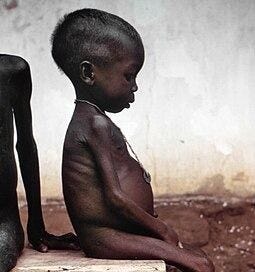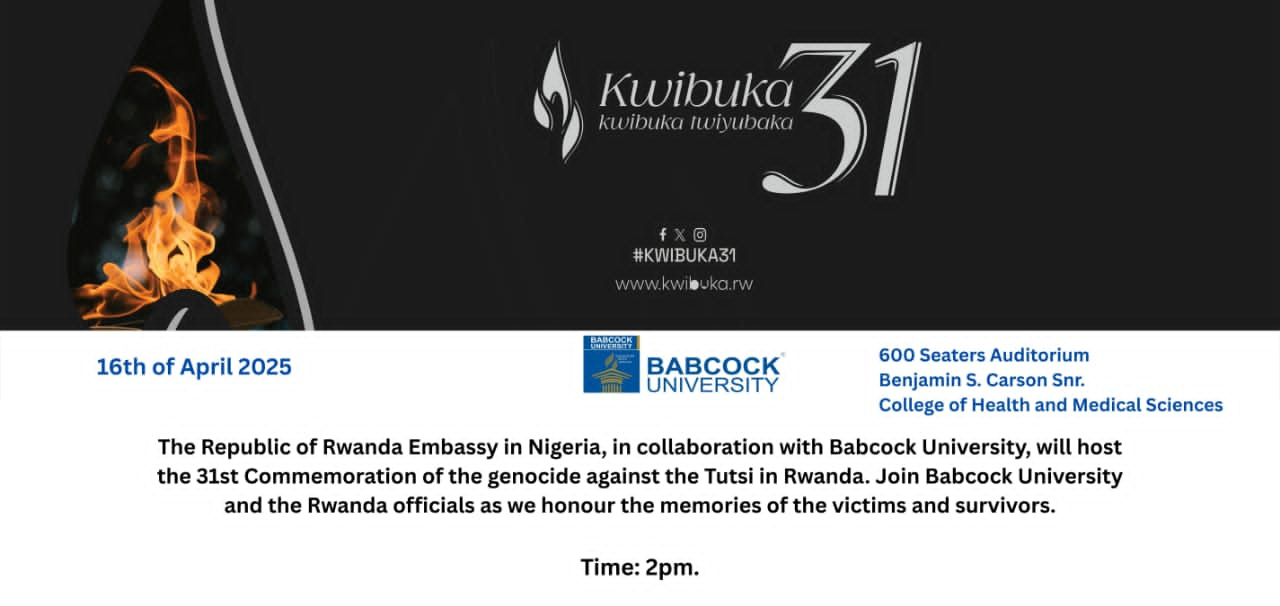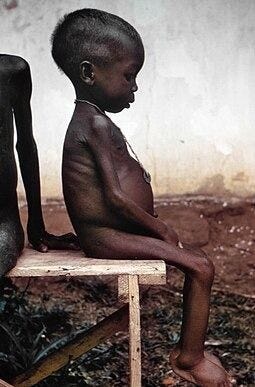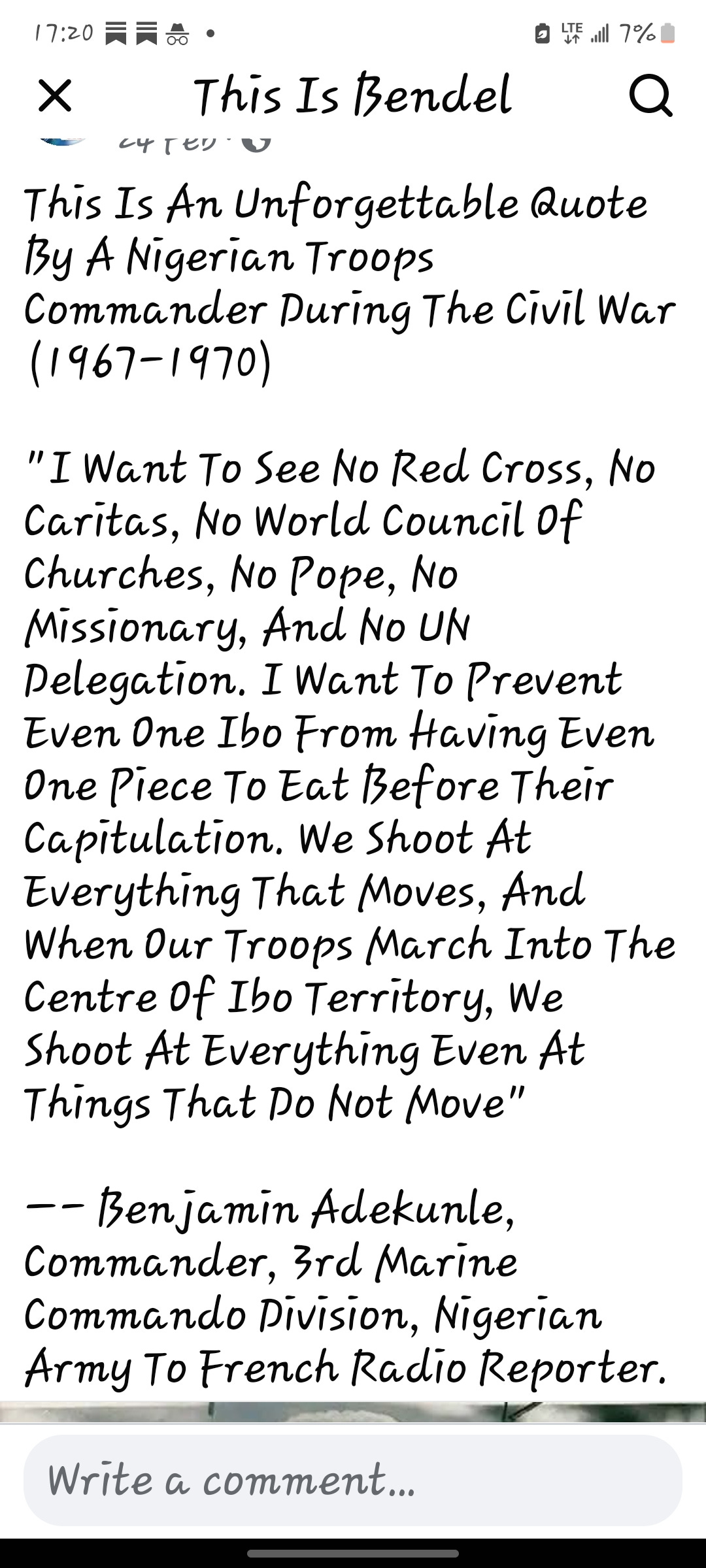Rwanda Faced Its Past. Nigeria Buried Biafra.
What Rwanda Taught Me About the Genocide Nigeria Pretends Wasn’t.
Today, in collaboration with the Rwandan High Commission, Babcock University hosted a commemoration service to remember the Rwandan Genocide against the Tutsis.
I found out about this event two weeks prior and then, I didn't know anything about the Rwandan Genocide. I didn't even know there was a genocide.
Funny enough, my HOD tasked us (my department) with coming up with a poem to remember those dark times. So, of course I set up to reading all I could find about the Rwandan Genocide against the Tutsis. And I found a lot of things. How the colonial masters started the whole divide by ethnicity thing, same thing they did in Nigeria. It's like these colonial masters all went to the same school. I also found out how they used media and radio to spread their lies and propaganda, causing the Hutu extremists to believe that their fellow Rwandans the Tutsis were “cockroaches”.
Although I didn't end up writing the poem - a 400 level student did it - I was happy to attend the service.
There was no clapping. We were told to wear black. There was a candlelight procession done for the victims and my coursemate performed beautifully, the poem.
All in all it was a very solemn occasion. We watched two videos on how the genocide happened and how the Rwandans were building and reconciling, the Hutu and the Tutsi.
Now, according to The University of Minnesota, College of Liberal Arts, Holocaust and Genocide studies:
Beginning in 1994 and lasting only 100 days, the Rwandan Genocide is one of the most notorious modern genocides. During this 100 day period between April and July 1994, nearly one million ethnic Tutsi and moderate Hutu were killed as the international community and UN peacekeepers stood by.
And in the videos they showed us, we saw how the Rwandans went back to their roots, using the Gacaca courts to punish the perpetrators and how they did reconcilatory efforts between the Hutu and the Tutsi.
However, the purpose of this essay is not to talk about the despicable genocide that happened in Rwanda. But to compare how the Rwandans handled their fear, despair and hate born of colonialism leading to war versus how the Nigerians handled it.
The Nigerian - Biafran war lasted three years, and it's is an estimated one to two million Igbo people died. I've read a lot of about the Biafran war, but I've never heard anyone refer to it as genocide. But attending the commemoration service today and seeing it happen in another country has made me begin to think that what actually happened was genocide. Mass killings of the Igbo people.
The UN definition of genocide from the Convention on the Prevention and Punishment of the Crime of Genocide (1948). It defines genocide as:
“...acts committed with intent to destroy, in whole or in part, a national, ethnical, racial or religious group.”
Specific acts like:
Killing members of the group
Causing serious bodily or mental harm
Deliberately inflicting conditions calculated to bring about its destruction
Imposing measures to prevent births
Forcibly transferring children
Here are my arguments as to why the war was not a war but in fact a genocide:
The Nigerian government blocked access to food like they did a total blockage essentially cutting of the Igbos from food and water. Even international aid could not get to them. There were children there for fucks sake. Hundreds of thousands of children died due to starvation. The Nigerian government knew what it was doing. They knew that the most effective way to kill off a people was to cut off their food and they did it.
They never taught us about it in school. I went to primary school for 9 years and secondary school for 6 years and I never heard about the war from my teachers. It wasn't in our curriculum or syllabus. If not for Chinua Achebe’s “There was a Country” and other books, I would be so ignorant. If the Nigerian government didn't do anything wrong, if the Igbos were not mass murdered and if they weren't trying to keep their dirty secret they would teach us, teach children about the war.
Beyond physical destruction, there were efforts to erase Igbo cultural identity through policies implemented after the war, including the infamous "20 pounds" policy that effectively wiped out Igbo wealth regardless of how much they had before the war. Like, the government literally said "oh you had millions before? Here's 20 pounds, manage it." How is that not a calculated attempt to economically cripple an entire ethnic group? They knew exactly what they were doing - making sure the Igbos couldn't rise back up. And we're not even taught this in school! It's like they're trying to erase not just the people but even the memory of what was done to them.
If we consider my arguments, the Igbos were targeted and the Biafran war should really be called the Biafran genocide.
Now, after the war ended, instead of Nigeria to apologize, punish the perpetrators and start the process of reconciliation, what did we do? We took to erasure, subtle threats and discrimination.
Stark difference from what the Rwandans did. They don't want their people to ever forget what happened. They are smart. They know what can happen when a people forget their history.
The government of Nigeria, just like the colonial masters, promotes divide along ethnic lines. They don't want you to know your history. They don't want you to know the truth. They don't want you to be united with other tribes. They want you to be divided so that they can conquer you.
And the funny thing is - it's working. The animosity between the Nigerian tribes is evident in our politics, in our government positions, in the way resources are allocated. The Igbo people are still discriminated against. They are still not fully integrated back into Nigerian society.
Pretend as we may, something as brutal as what happened during the war doesn't just go away especially without, justice, apology, and reconciliation.
The truth is, history has a way of haunting us when we refuse to confront it. What happened during the Biafran War wasn't just a civil war. It was calculated, it was cruel, and by every definition that matters, it was genocide. The difference between Nigeria and Rwanda is not just in how the violence happened—but in what they did after. Rwanda chose to remember, to teach, to heal. Nigeria chose to forget, to erase, to move on like nothing happened. But memory has a way of leaking through the cracks. And it's time we called it what it was. Not just a war. A genocide. And it’s time Nigeria was held accountable for it.







Thanks a lot for this piece
I was thinking about writing.
The grave images 😭
The massacre at a community that came to show solidarity with the Nigerian army 😭.
How come I learnt about European wars but not this?? 🫠
Although it was an interesting read and I learned interesting facts, I have to say that Rwanda didn’t completely faced its past and the fact that Rwanda is an active actor in the war at the West of DRC (genocide in the West) proves it.
I think that it would be more honest to recognise that fact.